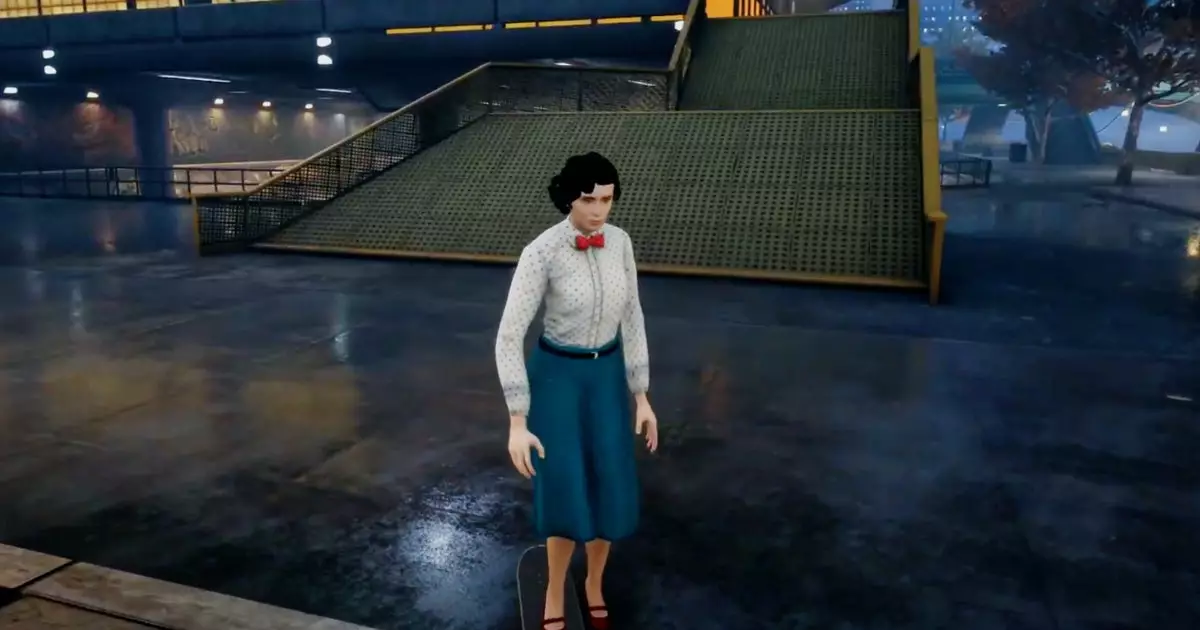In the realm of modern gaming, few phenomena evoke as much passion and creativity as modding. When a beloved classic receives a new release or remaster, it doesn’t necessarily mark the end of its lifecycle; instead, it often signals a new chapter driven by community ingenuity. The recent launch of Tony Hawk’s Pro Skater 3+4 exemplifies this trend, demonstrating that dedicated fans can elevate a nostalgic experience into something even more extraordinary through customization. As players dive into the game, the modding community quickly takes the reins, injecting fresh life and humor into the experience by reshaping characters and adding unexpected flair.
What stands out most in this wave of creative output is how modders like Huckleberrypie are pushing the boundaries beyond conventional gaming boundaries. By replacing familiar characters with an eclectic mix—from Mary Poppins, frozen kings, to mafia dons—these modifications transform player perceptions of the game’s universe. It’s not just about aesthetics; it’s about creating a dialogue between the original material and the personal tastes and imaginations of the community. The result is a game that feels both rooted in nostalgia and perpetually evolving, constantly challenged and redefined by user-driven innovation.
Why Mods Matter: Personal Expression and Cultural Reinterpretation
The essence of modding extends far beyond superficial changes. It’s a form of storytelling that allows players to reimagine and reinterpret narratives, characters, and worlds. When Huckleberrypie introduces Mary Poppins into the game, he doesn’t merely swap models—he weaves a story, giving her a backstory set amid depression and family upheaval, culminating in her rediscovering her roots through skateboarding. This blend of humor, creativity, and storytelling breathes new life into familiar characters, turning a game into a canvas for personal expression.
More broadly, mods democratize the gaming experience. They allow anyone with a bit of technical know-how or an artistic spark to contribute. This is especially significant considering how these modifications keep older games relevant in a rapidly changing industry where new releases often overshadow classics. By creating a platform for continuous customization, modding communities sustain engagement, foster connections, and promote a culture of shared creativity that transcends the original design intentions.
The Cultural Significance of Satire and Surrealism in Gaming
The eclectic character swaps—such as Tommy Angelo trading places with Tony Soprano, or Elsa from Frozen taking a whirl on a skateboard—starkly illustrate how humor and surrealism underpin the best mods. These aren’t simply aesthetic tweaks; they’re cultural commentaries that blur lines between media, genres, and realities. The absurdity of a mafia boss or a princess shredding the skatepark reveals an underlying desire to challenge norms and expectations.
This playful subversion offers a form of cultural critique, inviting players to reconsider familiar icons and narratives. It’s a reminder that gaming, at its core, is a flexible art form capable of satire, parody, and reinvention. In a way, mods serve as an act of rebellion against the homogenization of media, asserting that games are versatile enough to incorporate humor, social commentary, and pure whimsy.
The Limitations and Responsibilities of Modding
While the creative potential of modding is vast, it does come with limitations and ethical considerations. Not all mods are created equal; some may infringe upon intellectual property rights, or disrupt the intended gameplay experience. Developers and communities must find a balance that encourages innovation without crossing legal or ethical boundaries.
Moreover, as mods become more sophisticated—such as the addition of standalone characters or complex gameplay features—they can inadvertently introduce bugs or instability. Responsible modding involves respecting the original creators’ work while acknowledging that community-driven content can sometimes overshadow or distort the original game’s intent. However, it’s precisely this tension that fuels innovation and keeps the community vibrant, pushing the boundaries of what games can be.
Ultimately, mods are a testament to the enduring passion and creativity of gamers. They challenge the notion of passive consumption, turning players into creators. By reimagining characters, narratives, and gameplay, the community redefines what it means to experience a game—transforming it from a static product into a living, breathing work of collective art.

